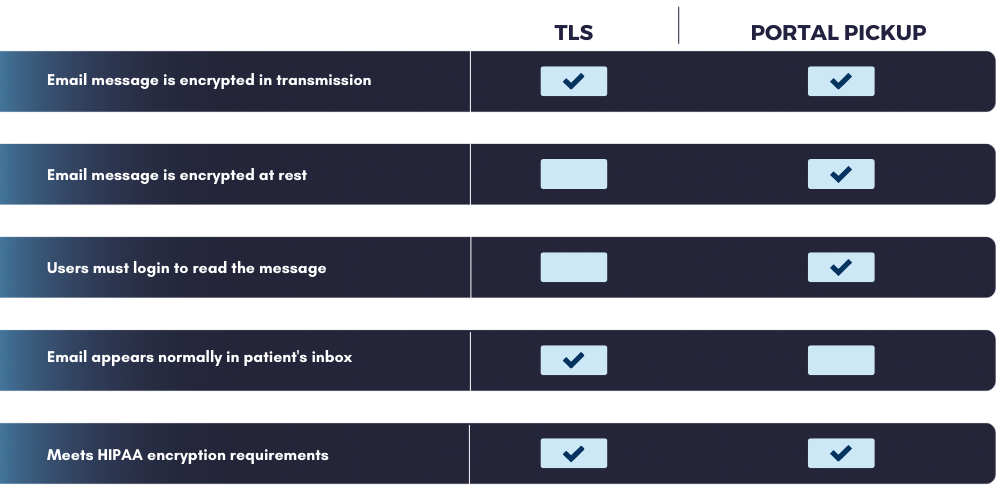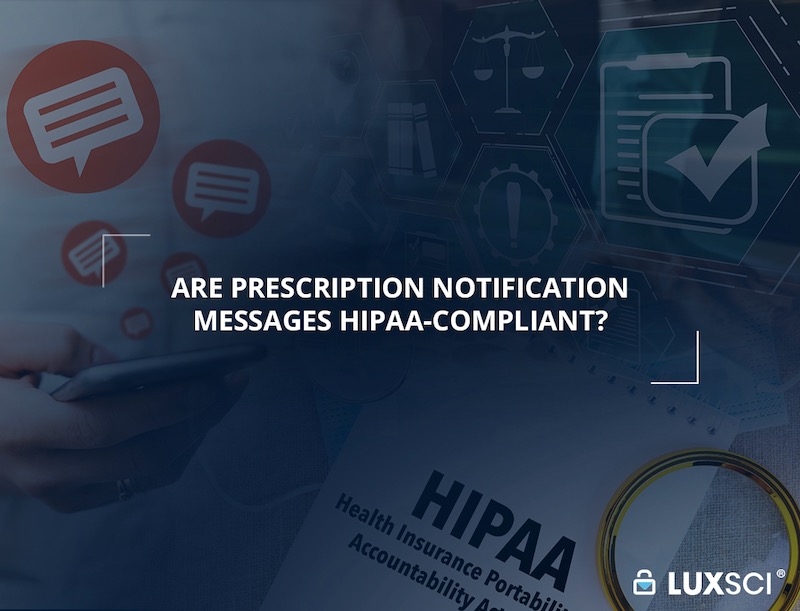Healthcare Marketing: Are You HIPAA Compliant?
Tuesday, January 14th, 2025Healthcare marketing is essential to growing your business successfully, but when you work in a regulated space such as healthcare, there are serious HIPAA compliance considerations that must be adhered to. Whether responding to an online patient review or trying to increase patient engagement through marketing campaigns, misunderstandings in marketing best practices can lead to patient privacy breaches.
Healthcare marketing and HIPAA work together through rules that healthcare organizations follow daily when promoting services and engaging patients. Healthcare marketing and HIPAA compliance affects everything from social media posts to email campaigns, requiring healthcare teams to understand when patient information can be used for promotional purposes.
HIPAA related healthcare marketing regulations distinguish between legitimate healthcare communications and marketing activities that need explicit patient permission, creating guidelines that protect patient privacy while allowing organizations to grow their practices.
Healthcare Marketing & HIPAA
A large part of HIPAA regulates what is appropriate for the use or disclosure of patient information. There are certain instances where the use and disclosure of protected health information (PHI) is allowed without patient consent. These instances include sharing PHI for treatment, payment, or healthcare operations.
However, before you can use patient information for marketing efforts, you need to receive explicit written consent from the patient. The consent form must be specific to the marketing efforts you will use the patient’s PHI in. For instance, if you would like to share patient testimonials, photos, or videos on your website or social media accounts, the patient must sign a consent form stating that you will use their information in this way.
HIPAA-compliant marketing also largely depends on an employee’s understanding of the law. Employees responsible for handling PHI must be trained to use and disclose PHI within the scope of their job role. Improperly trained employees can expose your practice to HIPAA violations and costly fines.
8 Common Misunderstandings With Healthcare Marketing and HIPAA
1. As long as patient consent is obtained, HIPAA doesn’t matter
Some organizations think they can use any marketing tool with a signed patient consent form. Still, the tool has to be HIPAA-compliant. Even if patients agree, it does not remove the organization’s obligations to secure PHI under the law. If protected health information is improperly accessed, it is still a breach and can lead to severe financial and reputational consequences.
2. Marketing emails do not need encryption
Many marketing emails imply a relationship between patients and providers and, as such, can often be classified as protected health information. PHI must be encrypted in transit and at rest to comply with HIPAA.
3. Personalizing marketing emails is a HIPAA violation
Marketing emails can be personalized as long as the proper safeguards and precautions are in place to protect patient privacy and meet compliance requirements.
4. Marketing companies do not need to sign Business Associates Agreements
As of 2013, the HIPAA Omnibus rule expanded HIPAA obligations to include business associates and subcontractors. Marketing agencies and vendors that process PHI on behalf of a covered entity must comply with HIPAA regulations, which include signing a BAA.
5. The only way to protect PHI is to use patient portals
TLS encryption meets HIPAA transport encryption requirements and provides a better user experience. Marketing emails sent with TLS encryption are more likely to be opened than those sent to a patient portal.
6. Using BCC is enough to keep patient identities private
BCC is NOT enough to protect patient identities. Although the end recipient cannot tell who else received the message, the entire list is visible as the messages are transmitted from server to server. The messages can be eavesdropped on by someone with technical abilities.
7. Always respond to social media reviews
Be extremely careful when responding to online reviews. Publicly confirming information about a patient’s health or treatment status is a HIPAA violation.
8. Healthcare marketing isn’t necessary or worth the hassle
Healthcare consumerism is rising, and patients are willing to change providers if they are unsatisfied with their experience. Educating and informing current and potential patients about your services is essential to improve new customer acquisition and retention.
How to be HIPAA Compliant In Healthcare Marketing?
The most crucial step is vetting marketing vendors and HIPAA compliance tools. Any vendor that handles PHI on behalf of a healthcare entity needs to sign a Business Associate Agreement that outlines how patient data will be stored, transmitted, and disposed of. Don’t choose a vendor who is unfamiliar with HIPAA’s stringent requirements. Also, watch out for quasi-compliance. Some self-identified “HIPAA-compliant” vendors can protect data at rest but not in transmission or require patient waivers to achieve compliance.
Next, always use encryption and default to security. Identifying PHI is often tricky, and the legal burden should not fall on the marketing team. By selecting technology that encrypts every marketing email, you can rest assured that messages are secure and compliant. A bonus tip- do not send marketing messages to an encrypted patient portal. Instead, send marketing messages with TLS encryption directly to patients’ inboxes. You will see much higher response rates and engagement.
Finally, to create the most effective marketing campaigns, use PHI to create segmented audiences and send them personalized content. These tactics are widely used outside the healthcare industry because they deliver results. *Remember that any tool you put PHI into must be HIPAA-compliant.
Social Media Marketing Under HIPAA Healthcare Marketing Rules
Social media platforms create challenges for healthcare marketing and HIPAA compliance because posts can inadvertently reveal patient information through photos, comments, or location tags. Healthcare organizations cannot post patient images, even from public areas of their facilities, without written authorization that allows social media use. Staff members need clear policies about what content can be shared on professional social media accounts and personal profiles that might identify their workplace.
Patient testimonials on social media require detailed authorization forms that specify which platforms will be used and how long the content will remain posted. Video testimonials need more detailed consent because patients may not fully understand how their image and voice will be used across different social media channels. Healthcare organizations must also consider whether patient testimonials posted years ago still have valid authorization and whether patients retain the right to request removal of their content.
Community engagement through social media allows healthcare organizations to share educational content, health tips, and general practice information without using patient data. Posts about new services, staff achievements, community health initiatives, and general wellness topics fall outside HIPAA healthcare marketing restrictions when they avoid references to patients or treatment outcomes. However, responding to patient comments or reviews on social media can quickly cross into impermissible disclosure territory.
Photography and video content for social media marketing must be planned to avoid capturing identifiable patient information in backgrounds or waiting areas. Even simple content like facility tours or staff introductions can inadvertently include patient information visible on computer screens, appointment boards, or patient charts. Healthcare organizations need protocols for reviewing all visual content before posting to ensure no protected information appears in social media marketing materials.
Email Marketing Personalization and Patient Data Usage
Personalized email marketing campaigns can incorporate patient information when proper authorization and security measures are in place. Healthcare marketing and HIPAA allows for segmentation based on treatment history, demographics, or service utilization when patients have consented to receive targeted marketing communications. However, personalization must be weighed against privacy protection, ensuring that email content does not reveal more patient information than needed for the marketing purpose.
Behavioral targeting in healthcare email marketing can use patient portal activity, appointment patterns, or service preferences to customize messaging without requiring extensive medical information. Patients who frequently access preventive care information might receive campaigns about wellness programs, while those who use patient portal features could get communications about digital health tools. This approach allows for relevant messaging while minimizing the amount of protected health information needed for personalization.
Dynamic content in marketing emails can reference patient names, preferred providers, or relevant services without including detailed medical information that might violate privacy rules. Email systems can populate patient information from authorized data sources while maintaining encryption and access controls that protect information during transmission. Dynamic content systems must include protections that prevent accidental inclusion of unauthorized patient information.
List segmentation for HIPAA healthcare marketing requires consideration of how patient groups are defined and whether those definitions reveal medical information. Segmenting patients by insurance type, geographic location, or general service categories may be permissible under healthcare operations, while segments based on diagnoses or treatment outcomes likely require marketing authorization. Healthcare organizations need clear criteria for determining when segmentation crosses from healthcare operations into marketing territory.
Vendor Management for Healthcare Marketing and HIPAA Compliance
Marketing technology vendors must sign Business Associate Agreements before handling any patient information for healthcare marketing campaigns. HIPAA and healthcare marketing rules extend to all third-party services that process, store, or transmit patient data, including email marketing platforms, customer relationship management systems, and social media management tools. Healthcare organizations cannot assume that vendors understand healthcare privacy requirements without explicit contractual agreements and compliance verification.
Cloud-based marketing platforms require attention to data location, encryption standards, and access controls that meet healthcare privacy requirements. Some marketing platforms store data in countries with different privacy laws or use subcontractors that may not maintain appropriate security measures. Healthcare organizations must verify that their marketing vendors maintain all patient data within approved geographic regions and comply with healthcare security standards throughout their service networks.
Integration between marketing platforms and healthcare systems creates compliance issues when patient data moves between different technical environments. Application programming interfaces, data synchronization processes, and automated workflows must maintain the same security protections applied to other healthcare information systems. Regular security assessments help ensure that marketing technology integrations do not create vulnerabilities that could compromise patient information.
Vendor compliance monitoring involves regular review of security practices, incident response capabilities, and staff training programs maintained by marketing service providers. Healthcare organizations need visibility into how their marketing vendors handle security updates, respond to potential breaches, and train their employees about healthcare privacy requirements. Annual compliance assessments and audit reports provide evidence that marketing vendors continue meeting healthcare privacy standards.
Campaign Analytics and Privacy Protection
Performance measurement for HIPAA healthcare marketing campaigns must weigh useful insights against patient privacy protection. Click-through rates, open rates, and conversion metrics can be tracked without exposing individual patient information when proper aggregation and reporting procedures are followed. However, detailed analytics that could identify individual patient behavior or preferences require the same privacy protections applied to other healthcare information.
Conversion tracking from marketing campaigns to healthcare services creates issues because it connects promotional activities with actual patient care. Healthcare organizations can measure whether marketing campaigns drive appointment bookings or service utilization without tracking individual patient journeys when proper anonymization techniques are applied. Aggregate reporting provides valuable insights about campaign effectiveness while protecting individual patient privacy.
A/B testing for healthcare marketing campaigns must ensure that test groups cannot be used to infer patient medical information or treatment status. Random assignment to test groups helps prevent bias while maintaining privacy protection, but healthcare organizations must avoid testing variables that might reveal protected health information. Test results should focus on aggregate performance differences rather than individual patient responses that might compromise privacy.
Patient feedback collection through marketing campaigns requires clear disclosure about how responses will be used and whether they will be connected to patient medical records. Survey responses, preference updates, and engagement metrics may constitute protected health information when they can be linked to individual patients. Healthcare organizations need policies that govern how marketing-generated patient data integrates with clinical information systems.
Content Creation Guidelines for Healthcare Marketing Teams
Educational content creation allows healthcare organizations to share valuable health information without using patient data or requiring marketing authorization. Blog posts, newsletters, and social media content about general health topics, treatment options, and preventive care serve legitimate healthcare communication purposes while promoting organizational expertise. However, content that focuses on provider services or competitive advantages may cross into marketing territory requiring compliance measures.
Patient story development for marketing purposes requires authorization that covers all intended uses of patient information across different marketing channels. Healthcare organizations cannot assume that general treatment consent covers marketing uses, necessitating separate authorization documents that specify how patient stories will be used in promotional materials. Patient stories must be reviewed to ensure they do not include more medical information than needed for the marketing purpose.
Visual content guidelines help healthcare marketing teams avoid inadvertent privacy violations when creating promotional materials. Photography in healthcare facilities requires protocols that prevent capture of patient information visible on computer screens, patient charts, or appointment schedules. Video content needs similar safeguards, with attention to audio that might include patient conversations or names in background discussions.
Compliance review processes for marketing content should include evaluation by both marketing professionals and privacy officers to ensure materials meet promotional objectives while maintaining privacy protection. Content review workflows can identify potential privacy issues before materials are published, preventing violations that might require expensive remediation or result in regulatory penalties. Regular training helps marketing teams understand how privacy requirements apply to their daily content creation activities.
Crisis Communication and Social Media Response Protocols
Online reputation management for healthcare organizations requires weighing patient concerns against maintaining privacy protection. Responding to negative reviews or social media comments can inadvertently confirm patient relationships or reveal treatment information that violates HIPAA healthcare marketing rules. Healthcare organizations need protocols that allow for professional responses without disclosing any patient information or confirming treatment relationships.
Public relations during privacy incidents must coordinate marketing communications with legal and compliance teams to ensure consistent messaging that does not compound privacy violations. Marketing teams may need to suspend certain campaigns or modify messaging during incident response periods to avoid appearing insensitive to privacy concerns. Crisis communication plans should include procedures for evaluating whether marketing activities should continue during privacy-related investigations.
Social media monitoring helps healthcare organizations identify potential privacy violations in real-time, allowing for rapid response before issues escalate. Automated monitoring tools can flag posts that mention patient names, medical conditions, or treatment details, enabling prompt removal or correction of problematic content. Monitoring systems must also comply with privacy rules and avoid creating privacy violations through overly broad surveillance of patient communications.
How LuxSci Healthcare Marketing Solutions Can Help
LuxSci’s Secure Marketing tool is an email marketing platform designed to meet HIPAA requirements. It allows marketing teams to segment audiences and personalizes emails to engage patients and improve marketing ROI. If you are already using a third-party email marketing platform, no worries, we got you covered. LuxSci’s Secure High Volume Email solution can integrate with any third-party platform to make sure those emails are also HIPAA compliant.








